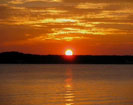I propose a basic test to determine who has earned the benefit of the doubt on whether to be labelled a denier or not.
Does the person have an academic or professional background in atmospheric science or climatology? If the answer is yes, then they earn the benefit of the doubt and should not be called a denier.
Does the person have an academic or professional background in another discipline and not a climate-related field? If the answer is yes, then they have not earned the right to be called anything other than a denier. Brian Brettschneider, “Climate Change Skeptic Or Denier?” at Forbes
Reader Otto Pellinen writes to say,
This article has an interesting take on appeals to authority:
– If you are yourself an expert, and you hold a minority position, you are a skeptic. This means you have a legitimate position of doubt.
– If you don’t have expertise, and you hold a minority position, you are a denier. Period. You should simply give the experts what they deserve, and trust that the consensus will reflect reality more closely than your naïve approach.
Let us assume for a moment that this principle is all true and rational. What happens?
Assume there is a multidisciplinary paradigm X holding a majority position. Suppose we are talking about disciplines A, B and C. Here you should be an expert in multiple fields of study in order to be legitimately called a skeptic, rather than a denier. Nearly the experts of A are not experts in B or C, so to question the paradigm X they would be deniers with respect to these fields. The same holds for experts of B and C. Very few people will be experts in all three fields, so they can be dismissed as a marginal minority.
Here we have a locked situation, in which any multidisciplinary consensus efficiently prevents experts from questioning the paradigm.
True, and the formula very much limits the role of informed judgment, a useful quality that is distinct from direct expertise. Informed judgment would include reflection on the relationship between pronouncements on matters of concern and the political and economic fortunes of the group making the pronouncements, for example.
When professionals’ livelihood and social status depends on a given state of affairs being accepted as fact, it is mere prudence to seek alternative viewpoints from less dependent sources before we commit to anything.
See also: Union of Concerned Scientists inconsistent as apocalypse marketing agency
Union of Concerned Scientists got started during the Viet Nam war, which could be the reason their rallying cry seems to be A-crock-a-lypse Now!
See also: A scientist shares his cyberbullying story: The anonymity that the internet offers can free academic scientists of the restraints that would typically govern their public behaviour. So trolling becomes the new peer review.
And Bill Nye thinks scientists who doubt human-caused global warming should be jailed. Sure, like Galileo.
It might surprise people who get their science history from Joe Bullroar and Bimbette Fluffarelli of Airhead TV, it was not at all clear centuries ago that Galileo and Copernicus were correct about the basic structure of the solar system. Many respected astronomers thought them obviously wrong for evidence-based reasons. It took decades to be sure who was right.
